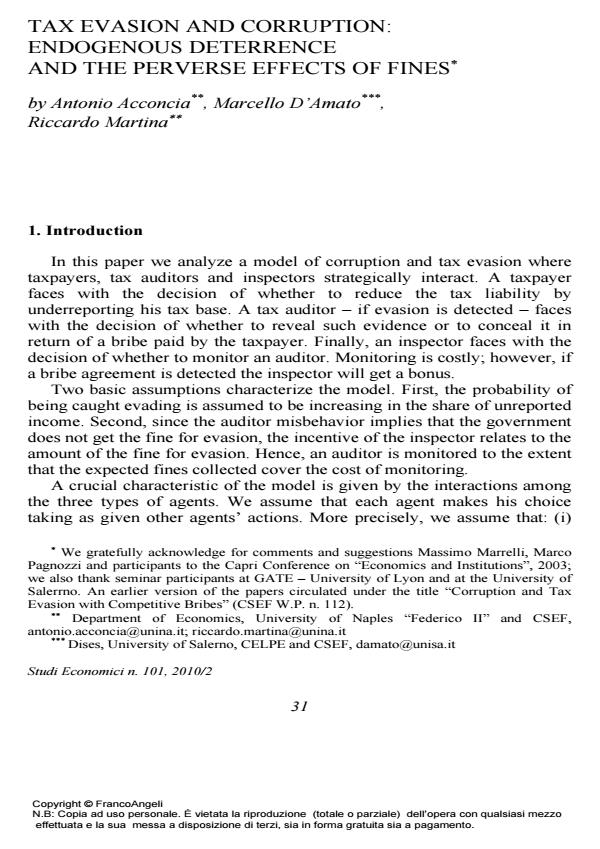Tax evasion and corruption: endogenous deterrence and the perverse effects of fines
Journal title STUDI ECONOMICI
Author/s Antonio Acconcia, Marcello D'Amato, Riccardo Martina
Publishing Year 2011 Issue 2010/101
Language English Pages 23 P. 31-53 File size 616 KB
DOI 10.3280/STE2010-101002
DOI is like a bar code for intellectual property: to have more infomation
click here
Below, you can see the article first page
If you want to buy this article in PDF format, you can do it, following the instructions to buy download credits

FrancoAngeli is member of Publishers International Linking Association, Inc (PILA), a not-for-profit association which run the CrossRef service enabling links to and from online scholarly content.
We consider a simple economy where self interested taxpayers have incentives to evade taxes and to escape sanctions by bribing public officials in charge of tax collection. However, tax collectors may be monitored by second-level inspectors whose incentives to exert detection activity are endogenously determined. In this framework, it is shown that the effects of classical deterrence instruments, such as fines, may be perverse; in particular, larger fines for corruption directly reduce corruption and indirectly reduce incentives to monitor it determining, as an overall effect, an increase in the underlying offence, that is tax evasion. Nevertheless, on the normative side, we show that, even if the Government cannot commit to a given level of deterrence, the maximal fine principle still holds.
Keywords: Corruption, Tax Evasion, Deterrence, Maximal Fine
Jel codes: H2, K4
Antonio Acconcia, Marcello D'Amato, Riccardo Martina, Tax evasion and corruption: endogenous deterrence and the perverse effects of fines in "STUDI ECONOMICI " 101/2010, pp 31-53, DOI: 10.3280/STE2010-101002